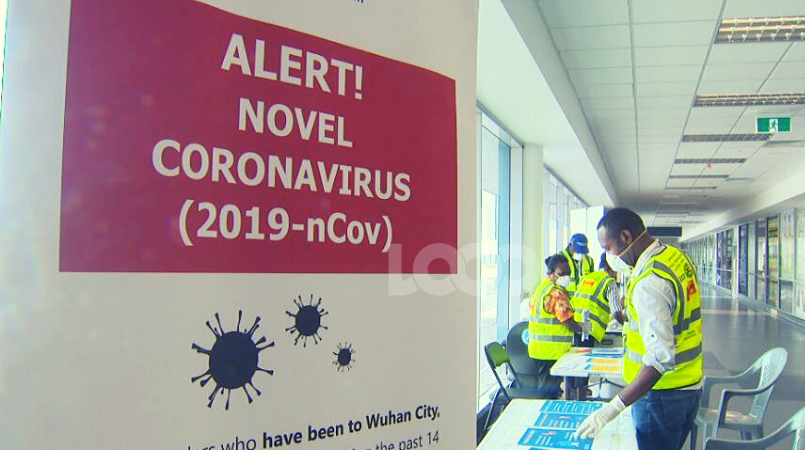
The World Health Organization declared the coronavirus outbreak a global health emergency on January 30th, with countries stepping up measures to protect their citizens.
The WHO said the decision is because of the danger of the coronavirus if it spreads to countries with weaker health systems.
In PNG, currently a health desk has been set up at the international terminal building at the Jackson’s International Airport, with Health Department staff manning the table with flyers and pamphlets that serve as a form of awareness.
Acting health secretary, Dr Paison Dakulala, and WHO Representative in PNG, Dr Luo Dapeng, were taken on a tour of the airport facility to see how they can step up surveillance following WHO’s recent decision.
“Because of the call of WHO, we’re coming to ensure we look at all the means and ways, how it’ll help us to minimise as much as possible, this risk that is coming into our country and one of those is those (temperature screening) machines. Others include the attire and how do we get those processes in place,” he told media.
“And this is not the only place where we will step up. It’ll be the surveillance setting as well; it’ll be at the clinical domain as well. That’s going to go through the budget requirements needed to mount the response that’s required.
“With WHO’s help and other partners, we have been able to find out what is the appropriate response but the key point is the costing and that’s what we’re working on to ensure we get the costing right.”
He stated that the forms and processes observed at the international terminal building help in minimising the risk of an outbreak.
Some media personnel were not reassured with the ‘health desk’ setup, and queried when the temperature screening equipment will be introduced, which is currently the main method being deployed at overseas airports.
Dr Dakulala alluded to the recent statement by WHO Representative, Dr Dapeng, who clarified that the pathogen’s incubation period could be up to two weeks hence individuals may not exhibit the symptoms of fever, cough or shortness of breath upon arrival.
“This incubation period can be from two to 14 days, that’s why we need a mechanism to ensure even when they cross border without fever, still we’ll catch it. So that’s the thing we’re working on. That’s why they have a declaration form.
“In a declaration form, where it says ‘I’m going to stay one month, contact number’. When the traveler goes through this, they also get a flyer telling them ‘if you have this and this’, you could contact this number – this 24-hour hotline.”
Dr Dapeng further stressed on partnership and collaboration as the way forward in stepping up PNG’s surveillance.
(The health desk in the international terminal building)
